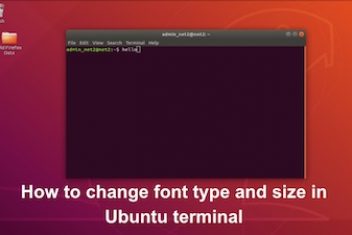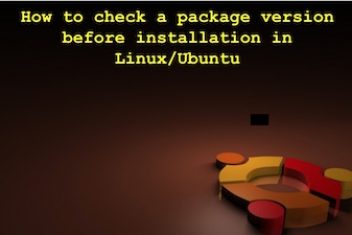How to change font type and size in Ubuntu terminal
For those who spend most of their time on the terminal, it may help to change the look and feel of the console in a way that makes them feel at ease. Among the many customizations, users have (more…)










